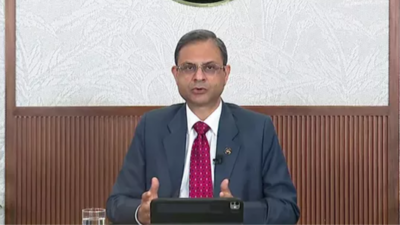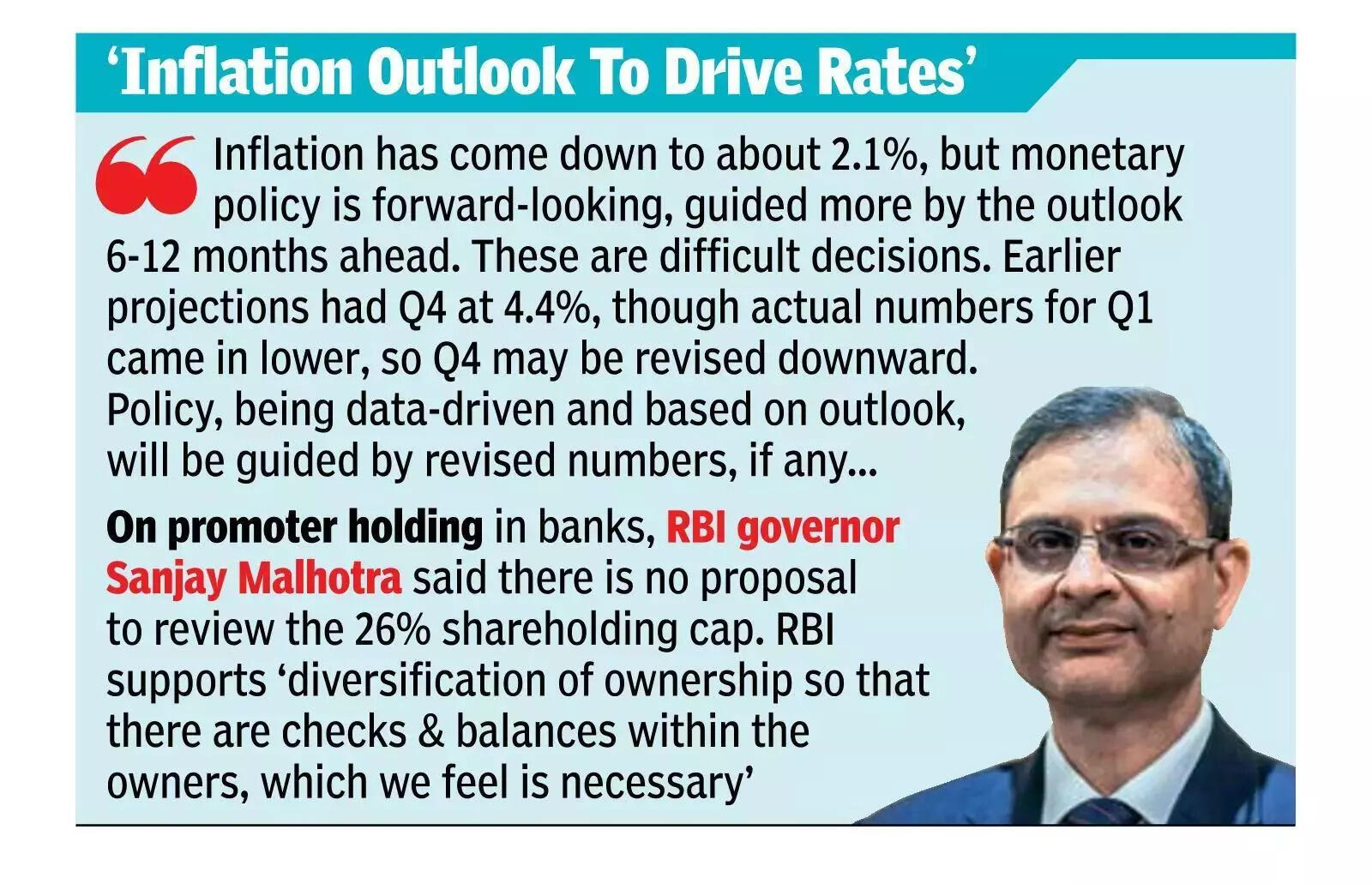RBI governor rules out banking licences for corporates

MUMBAI: There is no proposal to allow corporates – either directly or through NBFCs – to obtain banking licences, RBI governor Sanjay Malhotra said on Friday, citing “an inherent conflict of interest with a group actually dealing with the money of the depositors”. He said the monetary policy committee’s neutral stance gives it room to move interest rates “up, down or pause”. Malhotra said future rate decisions will be “data driven more on the outlook,” particularly for inflation and growth. “Inflation has come down to about 2.1%, but monetary policy is forward looking, guided more by the outlook 6 to 12 months ahead. These are difficult decisions. Earlier projections had Q4 at 4.4%, though actual numbers for Q1 came in lower, so Q4 may be revised downward. Policy, being data driven and based on the outlook, will be guided by revised numbers, if any,” he said, while speaking at a fireside chat in an event organised by Financial Express here.

On promoter shareholding in private banks, Malhotra said the 26% limit on voting rights is laid down under the Banking Regulation Act. “There is no proposal to review this 26% shareholding,” he said. RBI supports “diversification of ownership so that there are checks and balances within the owners, which we feel is necessary.” He added that foreign banks may hold up to 100%, subject to conditions.On governance, Malhotra said the ultimate responsibility for a bank’s operations lies with its board, though boards cannot be held accountable for every lapse. “The ultimate responsibility lies with the board,” he said. At the same time, “the board cannot be held responsible for each and every misdemeanour or episode”, Malhotra said. Boards must “be vigilant and ensure that the money that the depositors, many of them small, have entrusted with them is kept safe”.Malhotra said RBI is accelerating efforts to internationalise the rupee through trade settlements and currency agreements with several countries, even as talk of a common BRICS currency remains aspirational. Operational arrangements are in place with countries like the UAE, while discussions are ongoing with others. “We are in talks with Maldives, we have an MoU with them, and similarly quite a few other countries,” he said. On a BRICS currency, he said, “As of now, there is not much work happening on it.”




